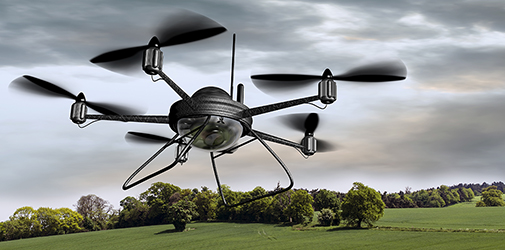With strong new regulations in Canada and the USA, the hey-day of unregulated consumer drone flight is at its end. The tightening of regulations goes far beyond what typical consumers see. Soon manufacturers and developers of unmanned aerial systems may face much more stringent requirements to sell their devices.
Aerospace Safety Requirements
The RTCA is not a name commonly heard outside the aviation industry, but it is on the mind of many Unmanned Aerial System (UAS) manufacturers. The RTCA is well known within the industry as the source of the DO-178 and DO-254 guidelines for safety in airborne software and hardware. While they are called guidelines, DO-178 and DO-254 are de-facto standards which must be followed to achieve legal certification for flight. Until now the RTCA has only released limited guidance on certification of unmanned aerial systems.
The Drone Advisory Committee
An ongoing Drone Advisory Committee within the RTCA continues to work on developing certification guidelines for unmanned vehicles. So far, very little information has been released from them. As of January 31st, 2016, the Drone Advisory Committee has agreed on the task statements for two of its subgroups:
Group 1 will “develop recommendations on the relative roles and responsibilities of the Federal, State, and Local governments for regulating certain UAS operations in low-altitude airspace as compared to the Federal Government’s exclusive role and responsibility for regulating all aspects of manned aircraft operations.”
Group 2 will “develop recommendations on UAS operations/missions beyond those currently permitted, and define procedures for industry to gain access to the airspace. These recommendations should lead to achieving these additional operations within the next 24 months through a risk-based approach to gaining operational approval and certification based on FAA regulations and guidance.” See the RTCA website for full details.
The Drone Advisory Committee is set to release interim recommendations in May 2017, and a final report in October. How this will affect the industry is uncertain, particularly for unmanned vehicles. Certification costs for commercial aircraft are known for being high, and if similar requirements are applied to the UAV industry it could have a large impact.
The Future
The future for unmanned flight is a bright one, and the innovation and creativity behind it are already showing promising applications in a range of industries. But the aviation industry is historically slow to adopt new technology, and (for good reason) extremely safety conscious. The speed of development and innovation seen in UAVs currently is at odds with the conservative and safety focused culture of the industry. What is certain is that big changes to how drones are certified and regulated can be expected in the coming year.

